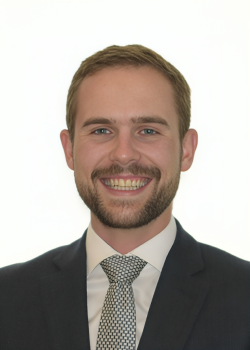Five years ago, I wrote a blog post about going unmatched. I described it as “dying” and while I tried to convey a sense of upbeat defiance, the truth is that I was still in the thick of it with many months remaining to fully step away from the stages of grief.
Today I sit in the final weeks of my residency and so much has changed that I barely recognize the person who wrote that first blog. I think she’d be shocked to know how little of the emotional intensity I can recall, how the only lasting impacts have been positive and how these days I mostly feel gratitude for the opportunity to fail. If you’re reading this as someone who recently went unmatched, you might be rolling your eyes right now (I would have too). But I’m writing this for you. There aren’t enough stories out there that speak to the long view – what life is like after the dust settles. So I’ve written this in FAQ format, answering the questions I had back when I was stuck in the existential dread of it all. I hope you find it helpful.
Question 1 (2020 me): Why did this happen/how do I make sense of this/etc.?
Answer (2025 me): You don’t. I don’t believe everything happens for a reason. Sometimes bad things happen and there’s no satisfying explanation. In fact, I think you should spend as little time as possible trying to force logic onto something that hurt you. The only way is forward. With time you will derive meaning from this experience without ever knowing the “point” of it.
Question 2 (2020 me): What’s wrong with me?
Answer (2025 me): Probably nothing. CaRMS outcomes are influenced by dozens of variables, many beyond your control. Having now sat on the other side of the table during interviews, I can tell you that ranking candidates is not an exact science. The difference between the person ranked 10th and the one ranked 20th is often negligible. This may not sound like good news and I suppose it isn’t, but my program only ranks candidates we’d be happy to train. Your position on the list might have led to rejection, but it doesn’t mean you weren’t wanted and isn’t a reflection of your worth or ability. And just so you know: once you’re in, no one remembers where you were ranked and nobody outside the CaRMS committee knows (or cares).
Question 3 (2020 me): But I thought [insert specialty] was what I really wanted.
Answer (2025 me): I know. You narrowed your focus, tailored every move to align with your chosen path and invested heavily in making yourself the perfect fit. So of course it felt personal when things didn’t work out. But please remember this: you are not your specialty. You are a complex human being with interests and who existed long before medical school. And despite what you may think right now, it is entirely possible to find joy, meaning and purpose in a different specialty or program location – even one you hadn’t seriously considered before. Besides, you can’t truly know how a specialty will feel until you’re living it, no matter what you’ve told yourself it’ll be like. What I’m saying is that going unmatched is a unique opportunity to stop chasing and instead let a specialty convince you of its appeal. Most specialties have something to offer everyone. And once you’re in practice, you’ll have the autonomy to shape your work and carve out a niche that fits you. Try to focus on what will matter to you twenty years from now, not what your pride and ego tell you matters today. Maybe you’ll still end up in the same specialty, maybe not. Either way, here’s a tip for you: Be wary of advice about a specialty from someone who has never actually practiced in that field.
Question 4 (2020 me): Will I always feel like a second-rate resident? Can people tell? Are they watching me more closely than my peers?
Answer (2025 me): No. That fear fades fast. If you’re feeling this way, channel your energy towards proving to yourself that you are a capable, strong physician. Remember that most people don’t know about how you got there and even if they do, it won’t be the most interesting or important thing about you. People will forget you were an unmatched resident sooner than you think. As you move forward you will be surprised how many of your colleagues have also had this experience and how little it impacts their life (not at all).
Question 5 (2020 me): What should I say when people ask why I chose my specialty? (Assuming you eventually match to a different specialty than originally planned)
Answer (2025 me): Now and forever, you get to decide how to answer questions about what brought you to your specialty. If you’re in the mood to describe your match experience, go for it. If you’d rather pretend you pursued [insert specialty] from day one and matched in round one, that’s great. I still make these decisions on the fly; in my early residency I struggled to talk about it because it was still fresh. Now, I have no problem sharing my story because I see value in owning it. But sometimes I still go with the white lie if I’m short on time or just don’t feel like getting into it.
Question 6 (2020 me): What if I don’t love this specialty either? Did I make the wrong choice? (Assuming you eventually match to a different specialty than originally planned)
Answer (2025 me): Give it time. You don’t have to fall in love with your specialty right away – or ever, really. You just have to find work that’s sustainable, meaningful and makes you feel like you’re contributing something of value. There are many ways to build a fulfilling career, including within a field you didn’t plan on. What feels “right” evolves as you do. And for the record, switching programs is possible, no matter what your medical school says.
Question 7 (2020 me): How do I show up at work when I feel ashamed or like I failed?
Answer (2025 me): One day at a time should do the trick. Just focus on what you can control – kindness, curiosity, effort – and remember this will eventually become just one paragraph in a much longer, much more interesting story.
Final thoughts
I’m honestly not sure I’d wish the unmatched experience on anyone, but I can’t deny the benefits it eventually brought me. It forced me to re-evaluate my goals inside and outside of a career. It taught me how to pivot, how to sit with discomfort and how to be flexible when I didn’t want to be. I’ve learned that resilience is a skill you can grow. I feel proud – not in spite of going unmatched, but partly because of it.
If you ever need a sounding board, I’m here: [email protected].




Be the first to leave a comment!